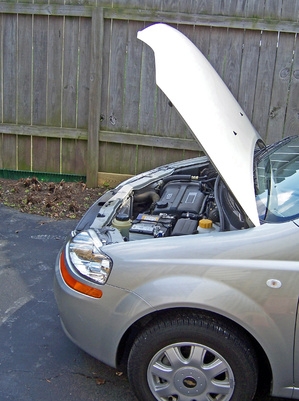
Every driver faces the threat of an engine breakdown while on the highway. If you hear grinding, screeching or knocking noise coming from your engine, then make an attempt to diagnose the problem. You can diagnose engine noise without using expensive tools; it takes only a good ear to hear the engine knocking during acceleration. Most engine noise indicates that starter or transmission repair is required to prevent further damage to the engine. Don't take chances; fix the problem right away. Refer to the parts diagram in your car's owner's manual to locate the parts requiring repair.
Place your foot on the brake and attempt to start the engine. If you hear any screeching or grinding noise coming from the engine, you may need to replace the starter. Verify that the starter shim and flywheel/ring gear have proper clearance. Also check that the starter drive and starter motor are operating.
Take the car out on the highway and accelerate to about 65 mph. If you hear a pinging noise as you accelerate, then you may need to replace the crankshaft or timing gears.
Continue to accelerate. If you hear knocking coming from the engine, then you may need to replace the distributor cap or timing chain. Check the condition of your spark plugs. If the plugs are broken or have large gaps, replace them.
Maintain a steady speed on the highway and, if you hear a chirping or pinging noise, you may have to replace the transmission mount. Also check the exhaust gas recirculation position sensor for debris and scrapes. Be sure that the valve is closed.
Check that the ignition timing is set according to the predetermined specifications programmed in the computer.